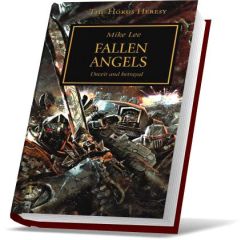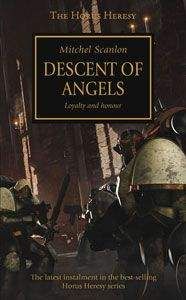Jonathan Howard - Johannes Cabal: The Fear Institute
Cabal had just vanished behind the first broken internal wall but he leaned out and put his finger to his lips. ‘Hush, Herr Corde,’ he said. ‘I need to be able to hear a snickering giant if I am to survive this.’ With which he vanished into the shadowed interior, leaving only a faint tang of sarcasm upon the air.
Once he was out of sight and – longed-for and glorious – by himself, Cabal’s artfully angled flippancy fell away to be replaced by a cool wariness, honed by a hundred unauthorised sorties into other people’s laboratories, other people’s libraries and other people’s graves. He could see that the damage caused by the mysterious Goliath was in no way wanton: it had simply decided that it wished to leave, had had its own reasons for not going by the main door – it was very hard to believe that a creature capable of such destruction would have had any problems with the great gates – and had made a dash for the outside, swatting away several hundred tons’ worth of pesky intervening walls in the process. Cabal could not know why the gates hadn’t appealed to it, but he was inclined to think that it was simply because it had not understood the concept of doors. He was also inclined to think, and here he was very sorry that he did not know, that since it had been so very keen to leave the confines of the great temple, then it would not be in any great hurry to return. This was supposition, however, and supposition could often cause one to die at an inconvenient time and with one’s work left unfinished. Therefore, he backed it with a generous portion of caution.
He paid little attention to the chambers he climbed through, beyond checking for possible threats: he found none. The light was becoming dim as he clambered through ruined offices, storerooms, subsidiary chapels and libraries, all raised in the honour of a god who seemed to care little enough now, perhaps even the god who had visited the city’s doom upon it. Gods had so much power here, and so little wisdom: like a child with a howitzer, they rained death on those who displeased them, and as for those who did please them, the gods did nothing. It was a poor sort of deal, to be left alone in return for tribute, a bullying sort of worship, but one common in the Dreamlands, and implied often enough on Earth.
He was just negotiating a route through some sort of chapel of rest, which must have been used on an industrial scale in its heyday, judging by the number of empty funereal biers, when he met with mishap. He stood upon a tumbled pew, and its end seesawed down alarmingly. Too far down: the floor was broken deeply through not just the sombre black tiling but into the very fabric of the Romanesque cement that lay beneath. The floor beneath the pew tipped steeply, pivoted on a structural beam beneath, and Cabal – unable to keep his feet – fell heavily and slid into the dark depths. Without his weight upon it, the floor swung back to equilibrium. Of the gap in the floor where Cabal had vanished, there was no sign but a crack.
It was not the first time Johannes Cabal had been dumped into darkness, and the experience had lost its dubious allure on his very first outing. He was thus already in a vile mood as he crumpled on to an unseen floor, his right knee driving up hard enough on impact to strike him in the face and to draw blood from where his canine ripped the inner lip. He spat out blood, saliva and invective as he sought to reorientate himself in this new and troublesome environment.
First, he took in what he could through his available senses. Wherever he was, the floor was even and worked so at least he hadn’t fallen into a cave system or a cavity formed by natural subsidence. This was good: there must therefore be a way out. He could taste dust that had been thrown up by his undignified entrance and, from his extensive experience of long-abandoned places, could tell that it was largely inorganic in nature, indicating that at least he was unlikely to be sharing the space with anything else at that exact moment, a small comfort. The air was cool and musty and, even after standing, he could wave his hand over his head without touching the ceiling, which accorded with the second and a half it had taken him to reach the floor. The light in the room from which he had fallen had been attenuated at best and none of it could make it past the obliquely spalled crack. He listened for a full two minutes before sharply stamping, and listening for the echoes. They confirmed what he had gathered in the moment of poor light as he fell, that he was in a room with hard walls, more likely stone than brick, and that it was no more than forty feet across in any dimension.
Now it was time to cast a little light on his situation. He had two option: to use a match from the silver matchbox in his pocket – a technological innovation that the Dreamlands were apparently prepared to countenance – or to try out a device he had spotted in an artificer’s shop in Baharna while trying to explain the concepts of percussion caps, powder corning and the special joy of putting a lead ball into any person who presents a nuisance.
The device consisted of a beautifully filigreed brass cylinder topped with a sphere of solid glass. Into the space beneath the sphere one placed a small capsule in which there was a beetle of a particular species, kept alive but sluggish through the agency of a small quantity of drugged food. The beetles were the Dreamlands’ equivalent of glow-worms or fireflies but, unlike their mundane cousins, they did not generate their light as it was required through a chemical reaction but, rather, stored sunlight during their pupal stage and released it at will through adulthood. Cabal had, at this stage of the artificer’s explanation, pointed out several scientific implausibilities in this explanation, stated a distinct lack of faith in the artificer’s truthfulness, and offered to nail the artificer’s fingers to the counter in full knowledge of the detrimental effect this would have on the artificer’s subsequent livelihood. At this point, the artificer decided that this would be an ideal point to offer a small lagniappe of sorts, in return for good will, future business and not having his fingers nailed to the counter.
Cabal had studied the device only briefly at the time, and had not loaded one of the capsules into the cylinder beforehand. Now he sat cross-legged and, in total darkness, carefully unscrewing the glass from the end of the cylinder. Once it was off, he dropped it into his right pocket for easy recovery later, and opened the parchment tube containing four capsules of fine wound wire. The parchment bent in his hand, and he was rewarded with the sound of the four capsules falling to the floor and rolling off in all directions. He bit back another testy comment, and started patting the floor around him carefully, with his open palm, in an attempt to find one.
‘Try by the tip of your left shoe,’ said a voice in the dark. It said it in Ghoulish.
Cabal started, his head held up, his ears keening. ‘Who are you?’ he meeped slowly.
‘Oh, do not attempt my language,’ said the voice. ‘Your accent is terrible. Speak in German, or English, or Latin, or whatever tongue you prefer, without that awful parody of a pharyngeal stop. I will understand you perfectly, and not be offended by your butchery of my elegant and poetic tongue.’
‘Ghoul speech sounds like somebody vomiting up halibut heads in syrup,’ said Cabal, stung by the attack on his pronunciation. He had worked hard on that pharyngeal stop. As he spoke, he reached out cautiously with his hand and discovered that, indeed, there was one of the lost capsules by the tip of his left shoe.
‘For somebody whose native language is German, you should be very careful about casting aspersions on the artistry of any other tongue.’
‘It is the language of Goethe,’ said Cabal, dropping the capsule into the open end of the cylinder. He recovered the glass sphere from his pocket and began screwing it home.
‘An accident of birth, not an informed choice. Forgive me if I am underwhelmed.’ There was a pause, then the voice said, ‘You are forgetting that it’s a left-hand thread. You will never put the thing together like that.’
Cabal had indeed forgotten that it was a left-hand thread, such had been his concentration on the voice and wherever it was coming from. ‘You don’t mind me using this, then?’ he said, as he finally finished screwing the sphere back into place.
‘Not at all. I know you cannot enjoy being in the dark, unable to see me, when my eyes can see you so very easily. Go ahead, Johannes. Cast a little light on proceedings.’
‘As you wish,’ said Cabal, and gave the lower end of the cylinder a vicious twist. Inside, a piston drove upwards, crushing the tiny cage and its soporific occupant. As the beetle was smashed flat and partially sieved through the mesh of the capsule, captured sunlight was released, refracted through the glass ball, and emitted all around in a yellow glow with an unhealthy green tinge. Cabal held the cold torch aloft and took stock of his surroundings.
The room was perhaps forty feet along its long axis, and thirty feet broad, built from rough brick. Around the walls were marble slabs, and Cabal realised that the room had once served as a mortuary for those of insufficient standing to take a place in the chapels above. At one end of the room there was a ramp broad enough for a coffin to be borne along, upon the shoulders of bearers. By the ramp on either side were deep alcoves at waist height, and in one of these sat a ghoul. Cabal risked a glance over his shoulder and saw that the brickwork had been broken through in the far corner. Beyond it doubtless lay a ghoul warren. Something caught his eye, and he walked over slowly to the pile of bricks as the ghoul watched him with mild interest.
Unlike house bricks in the waking world, they were square prisms so had no specific upper or lower sides. ‘Some of these bricks have mortar on four sides,’ said Cabal. ‘They’ve been reused. Why is that? Why has this wall been broken down once, rebuilt – less expertly by the look of the mortar – and then been broken down again? By you, I would guess.’
‘Well, let’s see,’ said the ghoul. It unwound its long betaloned fingers and began counting off points as if it were a professor in a lecture theatre. ‘First, this room used to have food in it.’
‘You mean corpses.’
‘Of course I mean corpses. I’m a ghoul. What did you think I meant? Sausage rolls and fairy cakes? Yes, human corpses. Not only delicious, but good for you too. You should try one some time.’
Cabal watched the ghoul with carefully concealed worry. Ghouls were not necessarily ruthless killers all the time, just most of it. They were strong, resilient and unpleasantly flexible, armed with vicious teeth in their canine jaws and sharp claws upon their powerful fingers. Once they had been human, though, and vestiges of that humanity still showed in many of them. Most had been nothing more than vile cannibals in life, and joined the tomb legions of the ghouls as their appetites overwhelmed their physiologies, altering them in these loathsome ways. They were beasts long before they ever became ghouls, and their chaotic, insane minds had long since fragmented completely. Others, however, had come to this transfiguration voluntarily via decadence and intellectual preference, and held on to much more of their previous life. He had never heard of a ghoul being quite so jocular before, though.
‘They don’t taste like chicken,’ mused the ghoul. ‘I don’t know why people think that. They should try some before spouting such rubbish. Much more like pork.’ The ghoul sighed. ‘But I digress. I was explaining the state of that wall. First, this room had food, corpses if you prefer, in it. So we broke open the wall, took a few bodies and replaced the bricks after we went.’
‘And nobody noticed?’
‘Administration is poor in the Dreamlands,’ said the ghoul. ‘They come down here, think, Wasn’t there a body on that slab? then think perhaps they imagined it, and wander off to write a haiku. We got away with it for years, sneaking in and out as necessary.’
‘Hold hard,’ said Cabal. ‘This city has not been populated in millennia. How could you have been here when it was occupied?’
‘That? Two reasons. Ghouls are effectively immortal, barring accidents and foul play. Thing is, being a ghoul invites accidents and foul play. It all evens out. Second, the ghoul warrens, the great underworld beyond that wall, obey the confines neither of time nor space. I can enter here, and exit in Massachusetts sixty years ago, or on the Moon sixty years hence. Time and place mean a lot less to me than they do to you.’
Cabal was silent for a long moment. ‘You can travel through time.’ His tone was distracted, thoughtful.
The ghoul chuckled, an unpleasant sound. ‘Then one day all the bodies went – living ones up above, and dead ones down here. All gone. The city was abandoned. No, that’s not a good word. Abandoned makes it sound like they had a choice. Depopulated. That’s better. Like deforested. Chopped down where they stood and taken away. Much better. That has a sense of it. Then we knew they would come. The many-legged ones, with the bat faces and no eyes, full of fever and corruption. And people think we’re disgusting.’ The ghoul laughed once, a bark. ‘Then the big thing came and killed the many-legs. Crack! Crack! Crack! Off come their legs! Then, crunch! Crush the skulls so no new little baby many-legs pop out of the dead brains. Have to admire the big thing. Thorough. Methodical. Never stopped until the many legs of the many-legs were dangling from gutters and thrown over rooftops and anywhere at all except on the bodies of the many-legs. Every skull . . . crunch! Good job, big thing! Of course,’ it added, rubbing its chin in a very human gesture, ‘if we go up top it will pull off our legs and crunch our skulls too. So we don’t go up there. That hole was blocked when the many-legs came, unblocked when the many-legs died. Now we peek out – careful and crafty – but the big thing is never about. Haven’t seen it,’ it giggled, as if at a private joke, ‘only hearsay.’
‘What is this “big thing” of yours?’ asked Cabal. He had never had such a lengthy conversation with a ghoul before. Normally they consisted of little more than ‘Get back into your holes, you damned cannibals, before I shoot you,’ and rarely developed into a discourse.
‘Not of mine,’ said the ghoul. ‘Not of mine, oh, no. Of somebody’s, but not mine. They’ve gone away now, but the big thing will be here for ever. Oh,’ it added conversationally, ‘it will kill all of you. Pull off your legs and break your skulls. Will probably pull off your arms, too. A limb’s a limb to the big thing.’
‘We got in easily enough,’ said Cabal, not sounding quite as confident as he would have preferred.
‘It didn’t know you were there. It was bored, lying down in Artisans’ Square, eating weeds. Very bored. Then you made lots of noise and it came looking for you.’
‘We did not make lots of noise,’ snapped Cabal. Then he thought of Bose’s indignant squeal. ‘Well, not very much.’
‘Made enough. The big thing has little ears, but they are very keen.’




